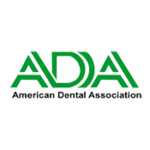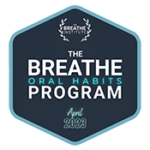Fluoride is a mineral that ensures a healthy development of your children’s teeth. It strengthens the tooth enamel and protects it from tartar and plaque which cause cavities. Children need fluoride supplementation after the age of 6 months. Research has proved that fluoride can diminish cavities on both children and adults. It also aids repairing the preliminary stages of tooth decay even previously the decay becomes noticeable. Unfortunately, numerous people continue to be misinformed about fluoridation and fluoride. In the same manner as other nutrients, fluoride is effective and safe when used correctly and used in smaller amounts.
What fluoride supplements can you can give to your children?
Fluoride ion is found naturally in soil, water, foods, and several minerals. The food intake ranges from 0.2 to 0.5 mg. Besides the amount ingested, age is important too. Infants ND children need less than the average adult. Infants can retain as much as 75% of their intake, while older children retain only 50% of the intake, storing it primarily in the hard tissues (bones and teeth) and in the kidneys.
Fluoride is administrated in two forms: topical and endogenous.
Topical application of fluoride contributes to the re-mineralizeation of the enamel after acid attacks of the diet or plaque.
Fluoride treatment is done by 3-4 applications every week and repeated 2-4 times per year. Number of applications and the intervals between them differ depending on the product used. You can use solutions, varnishes, and gels applied on isolated teeth or in special trays. The procedure is easy and pain-free: after a professional cleaning, the doctor applies a solution of gel or special varnishes with a high content of fluoride, usually in a tray, for 1-2 minutes. After treatment, the patient should not rinse mouth or consume food and liquids for 30 minutes.
The success of treatment depends on maintaining a thorough dental hygiene routine: brushing teeth two to three times a day, flossing and mouthwash, plus regular visits to the dentist.
Your doctor may prescribe toothpaste and mouthwash with a lower concentration of fluoride for weekly or daily use at home, but these home treatments are contraindicated in children under 6 years, and you should seek guidance from your doctor before using home treatments. Remember that most toothpastes and mouthwashes contain fluoride, so parents should closely monitor their children’s oral hygiene to ensure that they do not swallow fluoridated products. Flavored toothpastes are particularly “attractive” for the taste of children, so caution and supervision should be exercised.
It is commonly known that children, typically 7 and younger, but each child is different, can not brush or rinse their mouth without swallowing toothpaste. Almost half of the toothpaste on the brush can be swallowed on each brushing session. Children younger than 5 years have not yet learned to spit when tooth brushing, which, along with fluoride supplements, can cause fluorosis (overexposure to fluoride during the first eight years of life.) Precisely for this reason, fluoride mouth rinses are not recommended for children younger than 6 years, because more than likely they will swallow the mouthwash.
The endogenous (internal) administration of fluoride with tablets has the advantage of individual dosage by age, depending on the concentration of fluoride in water and food. This is generally not recommended, since fluoride in food, water, dental care products, and dental treatments is enough. For those in need, fluoridd tablets should be started early. There are doses individualized according to age, diet, etc. Fluoride treatment may be recommended to future mothers (pregnant woman starting with 4th month of pregnancy) and continued to feeding mothers to prevent cavities in baby teeth of children. This treatment in the form of tablets administered internally can continue daily until the child reaches the age of 14-15 years. This type of fluoride is considered to be the most effective, but should be only under the supervision of your child’s dentist and/or doctor. The need for tablets is also dependent on the individual needs, genetics, diet, and dental care received.
Sealants and fluoride
Sealants are filling materials with plastic properties (easy to apply on deep pits and fissures), especially on posterior teeth on their contact surface. Sealants have the property of isolating the dental surface from the environment of the oral cavity in order to prevent the formation of cavities. Also, sealants have the property to gradually release fluoride. The higher quantity of fluoride released is in first 24 hours after application. Sealing, fluoridation treatment, and a good oral hygiene routine can work together for keeping good oral health and diminishing the risk of cavities.










